Filter by
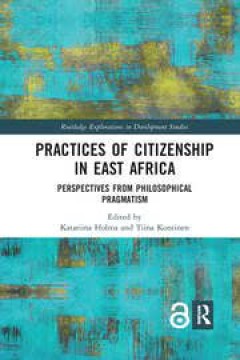
Practices of Citizenship in East Africa : Perspectives from Philosophical Pra…
Practices of Citizenship in East Africa uses insights from philosophical pragmatism to explore how to strengthen citizenship within developing countries. Using a bottom-up approach, the book investigates the various everyday practices in which citizenship habits are formed and reformulated. In particular, the book reflects on the challenges of implementing the ideals of transformative and criti…
- Edition
- -
- ISBN/ISSN
- 9780429279171
- Collation
- xi, 258 p.
- Series Title
- -
- Call Number
- 323.609678 PRA K
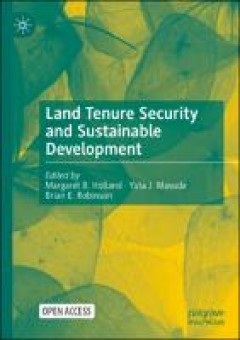
LAND TENURE SECURITY AND SUSTAINABLE DEVELOPMENT
This open access book presents a nuanced and accessible synthesis of the relationship between land tenure security and sustainable development. Contributing authors have collectively worked for decades on land tenure as connected with conservation and development across all major regions of the globe. The first section of this volume is intended as a standalone primer on land tenure security an…
- Edition
- 1
- ISBN/ISSN
- 9783030818807
- Collation
- xxxvii, 329p.; ill.
- Series Title
- -
- Call Number
- 333.3 LAN h
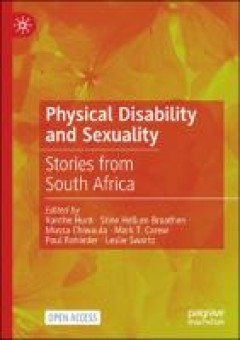
Physical disability and sexuality : stories from South Africa
This open access edited volume explores physical disability and sexuality in South Africa, drawing on past studies, new research conducted by the editors, and first-person narratives from people with physical disabilities in the country. Sexuality has long been a site of oppression and discrimination for people with disabilities based on myths and misconceptions, and this book explores how thes…
- Edition
- -
- ISBN/ISSN
- 9783030555672
- Collation
- xxvii, 154 p. ill;
- Series Title
- -
- Call Number
- 306.70870968 PHY

Women and the UN : a new history of women's international human rights
This book provides a critical history of influential women in the United Nations and seeks to inspire empowerment with role models from bygone eras. The women whose voices this book presents helped shape UN conventions, declarations, and policies with relevance to the international human rights of women throughout the world today. From the founding of the UN and the Latin American feminist move…
- Edition
- -
- ISBN/ISSN
- 9781003036708
- Collation
- xviii, 200 p.
- Series Title
- -
- Call Number
- 323.34 WOM R
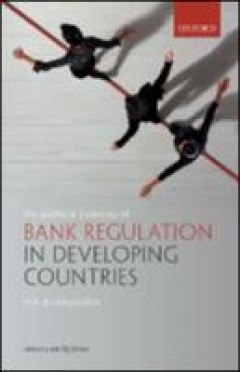
The political economy of bank regulation in developing countries : risk and r…
Why do governments in some developing countries implement international standards, while others do not? Focusing on the politics of bank regulation, this book develops a new framework to explain regulatory interdependence between countries in the core and the periphery of the global financial system. Drawing on in-depth analysis of eleven countries across Africa, Asia, and Latin America, it sho…
- Edition
- Ed. 1
- ISBN/ISSN
- 9780198841999
- Collation
- xvii, 386 p. : ill.
- Series Title
- -
- Call Number
- 332.1091724 JON t
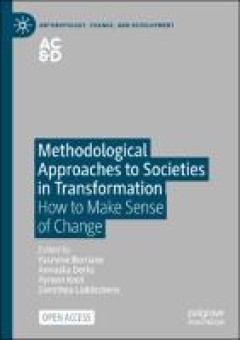
Methodological approaches to societies in transformation: how to make sense o…
This open access book provides methodological devices and analytical frameworks for the study of societies in transformation. It explores a central paradox in the study of change: making sense of change requires long-term perspectives on societal transformations and on the different ways people experience social change, whereas the research carried out to study change is necessarily limited to …
- Edition
- -
- ISBN/ISSN
- 9783030650674
- Collation
- xiii, 282 p. : ill.
- Series Title
- Anthropology, Change, and Development,
- Call Number
- 338.9 LUD m
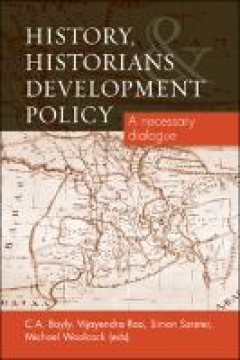
History, historians and development policy: a necessary dialogue
The substantive and methodological contributions of professional historians to development policy debates was marginal, whether because of the dominance of economists or the inability of historians to contribute. There are broadly three ways in which history matters for development policy. These include insistence on the methodological principles of respect for context, process and difference; …
- Edition
- -
- ISBN/ISSN
- 9781526151612
- Collation
- xii, 276 p. : ill.
- Series Title
- -
- Call Number
- 320.6 RAO h
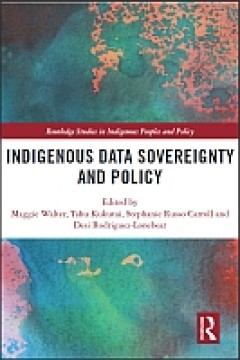
Indigenous data sovereignty and policy
This book examines how Indigenous Peoples around the world are demanding greater data sovereignty, and challenging the ways in which governments have historically used Indigenous data to develop policies and programs. In the digital age, governments are increasingly dependent on data and data analytics to inform their policies and decision-making. However, Indigenous Peoples have often been the…
- Edition
- -
- ISBN/ISSN
- 9780429273957
- Collation
- xii, 244p.: ill.
- Series Title
- Routledge Studies in Indigenous People and Policy
- Call Number
- 305.8 IND i
 Computer Science, Information & General Works
Computer Science, Information & General Works  Philosophy & Psychology
Philosophy & Psychology  Religion
Religion  Social Sciences
Social Sciences  Language
Language  Pure Science
Pure Science  Applied Sciences
Applied Sciences  Art & Recreation
Art & Recreation  Literature
Literature  History & Geography
History & Geography